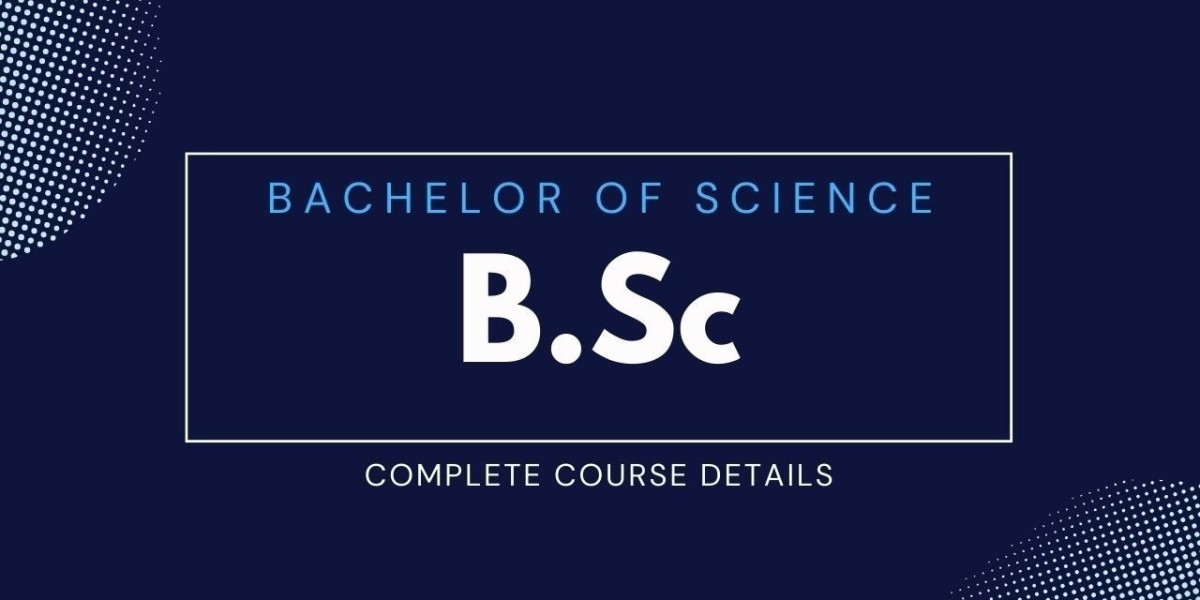The BSc full form, Bachelor of Science, is one of the most sought-after undergraduate degrees globally, offering a strong foundation in scientific and technical fields. Designed for students with a keen interest in science, technology, and innovation, this degree prepares graduates for a wide range of career opportunities. This article delves into the BSc full form, its structure, and the significant impact it has on career prospects across various industries.
Understanding the BSc Full Form
The Bachelor of Science (BSc) is a three-to-four-year undergraduate program offered by universities worldwide. It provides students with an in-depth understanding of their chosen field of study, focusing on both theoretical concepts and practical applications.
The BSc degree covers a wide array of disciplines, from natural sciences like physics and biology to applied sciences such as computer science and biotechnology. It is designed to develop critical thinking, problem-solving, and analytical skills, which are essential for success in both academic and professional environments.
Structure of a BSc Program
A typical BSc program includes:
- Core Subjects: These foundational courses provide students with a deep understanding of their field, such as chemistry, mathematics, or information technology.
- Electives: Students can choose additional subjects based on their interests and career goals.
- Laboratory Work: Practical sessions allow students to apply theoretical knowledge to real-world problems.
- Research Projects: Many programs include a final-year project or dissertation, which enhances research and analytical skills.
This structured approach ensures students graduate with a robust knowledge base and hands-on experience.
Specializations in BSc
One of the most appealing aspects of the BSc degree is its versatility. Students can choose from a diverse range of specializations based on their interests and career aspirations.
1. BSc in Physics
Focuses on the study of matter, energy, and the fundamental forces of nature.
Career Prospects: Research scientist, physicist, or roles in engineering and data analysis.
2. BSc in Chemistry
Explores the properties, composition, and reactions of substances.
Career Prospects: Chemist, quality control specialist, or roles in pharmaceuticals and environmental science.
3. BSc in Biology
Covers topics related to living organisms, ecosystems, and life processes.
Career Prospects: Biologist, healthcare professional, or environmental consultant.
4. BSc in Computer Science
Emphasizes programming, software development, and technological innovation.
Career Prospects: Software developer, IT consultant, or roles in artificial intelligence and data science.
5. BSc in Environmental Science
Addresses ecological issues and sustainable practices.
Career Prospects: Environmental scientist, conservationist, or roles in urban planning and policy-making.
6. BSc in Psychology
Studies human behavior, mental health, and cognitive processes.
Career Prospects: Psychologist, counselor, or market research analyst.
Why Pursue a BSc Degree?
1. Wide Range of Career Opportunities
The BSc full form signifies a degree that opens doors to numerous industries, including healthcare, technology, research, education, and environmental science.
2. Foundation for Advanced Studies
A BSc degree is an excellent stepping stone for postgraduate education, such as a Master’s or Doctoral degree. Students can specialize further in their field or explore interdisciplinary studies.
3. Development of Critical Skills
The curriculum emphasizes analytical thinking, problem-solving, and research skills, making graduates highly employable and adaptable.
4. Global Recognition
The BSc degree is internationally recognized, making it easier for graduates to pursue further education or employment opportunities abroad.
5. Pathway to Innovation
Specializations like biotechnology, environmental science, and computer science encourage students to engage in research and innovation, contributing to societal and technological advancements.
Career Prospects for BSc Graduates
1. Professional Roles
BSc graduates are equipped to work in various industries, such as:
- Healthcare: Roles in diagnostics, research, and public health.
- Technology: Careers in software development, data analysis, and IT consulting.
- Environmental Science: Jobs in conservation, sustainable energy, and urban planning.
2. Higher Education
Many graduates opt for advanced degrees like MSc, MBA, or specialized certification programs to enhance their expertise and career prospects.
3. Research and Development
BSc graduates often contribute to groundbreaking research in fields like medicine, renewable energy, and artificial intelligence.
4. Teaching and Academia
A BSc degree can lead to a career in education, enabling graduates to teach at schools or universities.
5. Entrepreneurship
Graduates with a BSc degree can also start their own ventures, particularly in tech-driven fields like software development or biotechnology.
Challenges and Considerations
While a BSc degree offers numerous benefits, students should be prepared for certain challenges:
- Rigorous Curriculum: The program requires consistent effort and dedication, especially in research-intensive fields.
- Choosing the Right Specialization: Selecting a field that aligns with one’s interests and career goals is crucial.
- Staying Competitive: Rapid advancements in fields like technology and biotechnology necessitate continuous learning and upskilling.
Tips for Maximizing a BSc Degree
- Select the Right Specialization: Research fields that align with your interests and have strong career potential.
- Engage in Internships: Gain hands-on experience through internships or research projects.
- Build a Network: Attend seminars, workshops, and conferences to connect with professionals in your field.
- Pursue Further Studies: Consider postgraduate programs or certifications to deepen your expertise.
- Stay Updated: Keep abreast of industry trends and advancements to remain competitive.
Conclusion
The BSc full form, Bachelor of Science, represents more than just a degree—it is a gateway to a wealth of opportunities in science, technology, and beyond. This versatile program equips students with the knowledge and skills needed to excel in various industries and lays the foundation for advanced academic pursuits.
Whether aspiring to become a researcher, educator, or industry professional, the BSc degree offers a robust platform for growth and innovation. With its global recognition, diverse specializations, and emphasis on critical thinking, it continues to be a preferred choice for students worldwide.
For those passionate about exploring the mysteries of science and making meaningful contributions to society, the BSc degree is a stepping stone to a fulfilling and impactful career. By choosing this path, students embark on a journey of discovery, innovation, and personal growth, unlocking their true potential in the ever-evolving world of science and technology.









